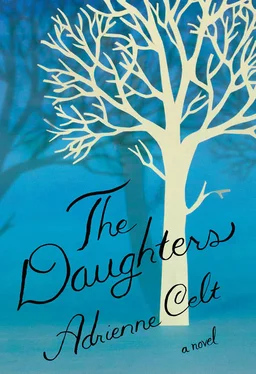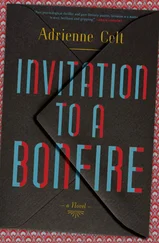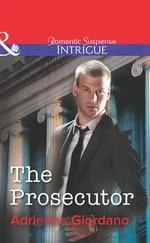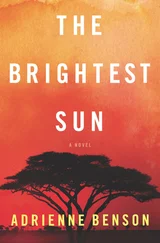“Mama did?” My mother’s moods and choices seemed to come like weather, blowing warm, then cool, then gray. She could, even then, be gone for days at a time, and I held any scrap of information about her close to my chest in the hope that it would lend some sense to her inscrutable patterns. Stretched-out hair ties left on the sofa arm, a broken teacup thrown in the trash: they were all meaningful to me. But Ada, who understood her better than I did, wasn’t interested in my archeology. She gave me a look, and I changed my question. “Known what?”
We skittered past a brightly lit series of brownstones, and I made a mental list of what I saw. A man swirling something in a glass. A dog curled up on a blue couch, alone. Two women standing front to back, one pulling up the zipper on another’s dress.
“That little group.” Ada gestured upward, away. “Such a silly thing to do. You don’t need anything to belong to.” She put her arm around my shoulder. “You’re already part of something bigger.”
I saw a mostly dark building with one bright room. It appeared in the distance like a beacon and seemed to grow warmer and warmer as it approached. A radiant den in a stone tomb. Just as we slipped by, I saw there were gauze curtains hung across the window frame. Light blue curtains, moving slightly, as though unsettled by the train. I was seized by a sudden urge to reach out and touch whatever lay behind them, because it was alien, because it wasn’t mine. But though I looked hard, the world behind the curtains remained indistinct, and we were gone too soon for me to see if I could peer into the space between them.
At some point in our ride I fell asleep, my cheek crushed against the hard plastic window frame. I awoke to Baba Ada pulling on my elbow, ushering me quietly to my feet. In sleep I’d tucked myself up into a circlet, knees and hands all compressed into my coat for warmth. The train’s lights flickered momentarily off as we pulled up to an elevated wooden station, and I stood on creaky knees, trying to maintain my balance.
“ This is Lawrence ,” declared the car’s speaker.
“Hmm?” I asked Ada.
“I had an idea.” She tightened her grip on my elbow, and the cold night air rushed around us. When we reached street level, she stopped and instructed me, “Close your eyes.”
I was still only at the edge of consciousness and followed her lead through the streets as through lukewarm water, not really paying attention. Ada took care that I didn’t slip on black ice or ever feel the looming of a mailbox or parking meter in front of my forehead, and I trusted her to do it. As though she were my own subconscious, ferrying me across the boundary of sleep.
“Keep your eyes closed,” she said, as my senses were enveloped by a sudden breath of cigarette smoke and body heat and human noise. “Stay here for a second.”
I stood blind and still in the middle of a wooden floor, swaying with the crowd, locking and unlocking my knees. “Who’s that?” I heard from a strange voice nearby, making its way out of the general bubbling of conversation. But if a reply came I never heard it. Ada returned and took my hand again, guiding me forward. Whispering, “Excuse me, excuse me,” I brushed by soft, invisible bodies. I banged my knee on something hard. And then I found myself seated in a too-tall chair, instructed to open my eyes at last.
It was still like a dream. Except that around me every face was amused, as though my presence was some wonderful joke. I was in a large and low-lit room, surrounded by tables full of men and women in evening clothes, facing a stage. Behind me, as I saw when I craned my neck, stretched a long rectangular bar, backed by mirrors and stacked with many-hued bottles of varying heights.
The conversation stilled and the hushing of a drum brush called my attention to the front of the room. Somehow, without my noticing, a band had taken up residence in front of the red curtain. A bassist leaned against his upright, picking his teeth, while the trumpet player and pianist opened up the room with a low tune, tossing handfuls of chattering notes out over the drumbeat. The bassist cracked his knuckles and started plucking away, layering his soft haum haum haum under the present melody.
And then she came, slipping out from a slit in the curtains I hadn’t seen. Her dress green and shimmering with sequins. My mother slunk across the stage, saying hello with her hips. She leaned briefly over the piano, hopped forward with a smiling “Oh!” when the bassist plucked out a few loud notes behind her. She hummed along with the song, audible even though she trapped the music under her tongue, feeling it out like a hard candy.
“ Mama ,” I said under my breath. She didn’t see me, and didn’t hear me. Instead she sang and tossed her hair — just a lock at a time over her left shoulder, as though keeping inventory or marking time. As the song rose — crescendoed, ascended the scale — she ran her hands, fingers open, down her hips and then lifted them slowly into the air with upraised palms. I felt the song invade behind my shoulder blades. Imagined her fingers on my cheeks.
“I thought this might be a better way,” Ada whispered. Her breath a distraction, a hot intrusion in my ear. I twitched away from her, but she leaned in and lifted my chin to her face. “Now you understand.” Her voice was firm. “Presentation.”
She tilted my head back towards the stage, using her thumb and index finger.
“Presentation.”
When the song was done, my mother melted back into the curtains, barely moving them as she slipped through. And we all sent our hearts back with her.
Some of my memories are like this, half soft, half sharp. My whole small self leaning towards the stage, leaning towards the invisible whatever that lay behind it, hiding my mother. My mother, most beautiful, who is never in my mind without bringing her whole complicated self.
She is awash in connotation. She is transforming. She doesn’t exist. She is the only real thing in the world. How can I still feel this way when I’m a grown woman, with my own child? It was the hidden truth of my life for so long — this love, this longing. Ada knew better than to let me bring it too close; even the night of her great presentation she kept my love on a string. Led me with eyes closed, ushered me to bed before my mother stumbled home.
But now Ada is gone. And the doors she guarded are coming unlocked. Who was Greta, really? What did she mean? And where did my mother go, and why?
Greta and Saul married in late fall, in the middle of a rainstorm. Ada told me about it every year on the anniversary of their wedding — November 15. It was important, she said, to understand that Greta and Saul were in love in light of everything that came after.
The rain that day, according to Ada, was strange. It obscured the entire sky, including the clouds, with its sheer weight and its audacity. People huddled together inside, but the rain infiltrated after them. It slipped through their walls in the form of a mist and clung to their clothes, dripped on the floorboards. Outside the rain fell like sheets of needles, shivering, silver, and sharp. When anyone poked their head through the door to check for signs that the weather might yield, they saw nothing, nothing but those undulating waves.
Until they saw Greta.
If her guests were nervous about going outside, the bride was elated. No one could remember seeing an announcement, and certainly no one had been formally invited, but most of the town recalled catching sight of her, and once they did they were enchanted. Greta greeted the water like a friend and raised her nose to the mineral smell, the clean air each peal of rain left behind. With her white dress hugging her closely, she walked along the black dirt road and made no attempt to cover herself up in the face of the storm.
Читать дальше












